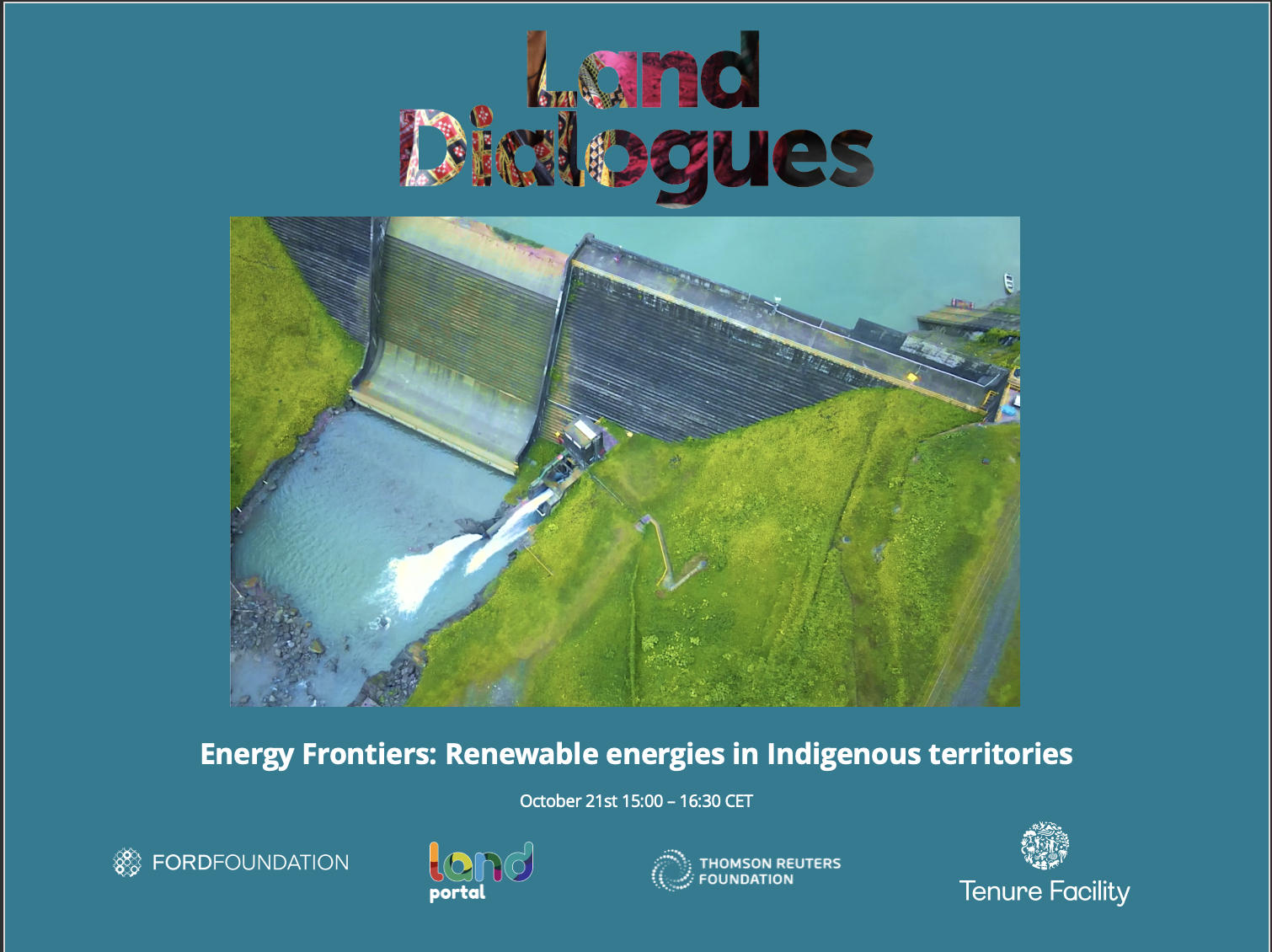
Organisers: The Tenure Facility, Land Portal Foundation, Ford Foundation and the Thomson Reuters Foundation
When: October 21st 2021 at 9:00AM-10:30AM EST (15:00 PM– 16:30 PM CET)
Language of the event: Simultaneous interpretation in English, Spanish, French and Portuguese.
Where: online, please register here.
Although renewable energy has not been inherently positive for Indigenous Peoples, there is a growing recognition among private and government actors that attaining the highest possible standards in respect of Indigenous Peoples’ rights is simply a matter of sound business principles and good practice.
Addressing climate change requires that we transition quickly to renewable energy while grounding our efforts in human rights. This requires a more nuanced understanding of Indigenous Peoples’ rights related to sustainable energy, and dedicated action to ensure they are not left behind. Comprehensive due diligence processes are crucial in maintaining a positive relationship between the company and community. At the community-level, indigenous-led approaches to renewable energy production can inspire further human rights-based action on the ground. Such initiatives are more likely to be effective in reducing poverty and serving the self-determined development goals of communities.
In addition to safeguarding against rights abuses and negative development impacts on Indigenous Peoples, positive approaches to renewable energy production should be promoted and adopted as part of the SDG implementation and climate action frameworks.
This webinar seeks to open up the discussion on different visions of how renewable energy goals (SDG7) can be achieved in an inclusive and equitable manner. We will discuss how to ensure fair participation for Indigenous Peoples and local communities in the decision making process, while maintaining their governance over their territories as active actors in energy transitions, not simply as spectators.